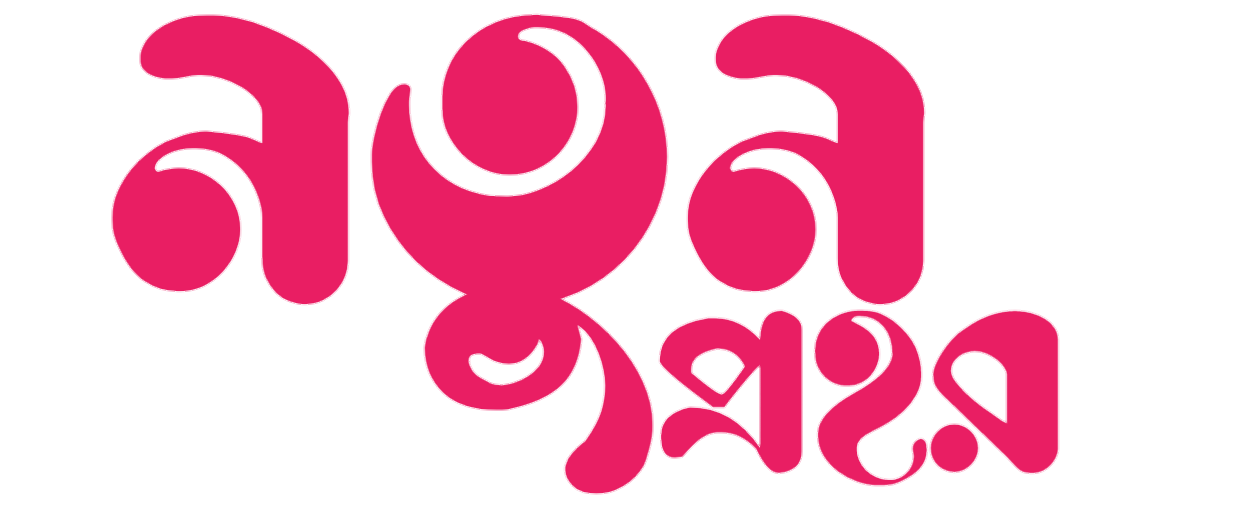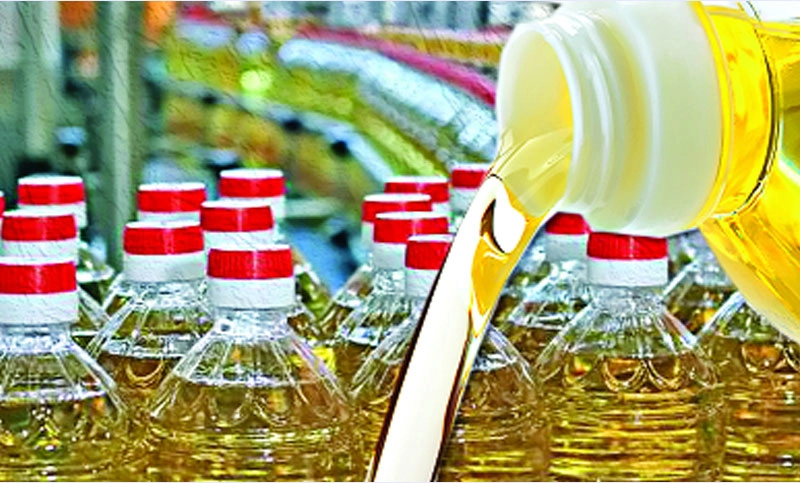The government is withdrawing VAT on edible oil to keep prices affordable. Finance Minister AHM Mustafa Kamal gave this information to reporters after the meeting of the Cabinet Committee on Government Procurement and the Cabinet Committee on Economic Affairs on Thursday.
However, the National Board of Revenue (NBR) has not issued any notification till last night. Notification may be issued on Sunday.
If the notification is issued, the impact of VAT withdrawal will be felt in the market by the beginning of next week.
The finance minister told the reporters, 'We have removed the products on which VAT was applied so that the prices are at a bearable level. Finance Minister interacted with journalists virtually.
 Kalerkantho
KalerkanthoThe duty and VAT of some products have been withdrawn - When asked, the finance minister said, 'VAT and duty imposed on daily essential products including edible oil, sugar, gram have been withdrawn. Basically, this step was taken regarding the products which are needed more in the month of Ramadan. The minister said that 15 percent VAT has been withdrawn at the production level and 5 percent at the consumer level of soybeans.
Incidentally, 10 percent duty has already been reduced to keep sugar prices under control. It is valid till March 15. There was no import duty on gram.
Acknowledging that people are struggling to buy daily necessities, the finance minister said, 'Our
Low own production of products, they have to face problems. We meet the demand by importing these products from the international market. But now there is a war (Russia-Ukraine). At this time, even if there are goods, the price increases. The cost of bringing the product also increases. Importers also try to take advantage. '
Finance Minister said, 'TCB activities have been expanded. Increasing the distribution system. I will take TCB to every union level, so that no poor people suffer. '
The minister said, 'We are going to bring one crore families under TCB. From edible oil to other daily necessities, I will give them at a fair price. '
Oil: According to the Ministry of Finance, in the case of soybean oil, 15 percent VAT has been waived at the production level and 5 percent at the consumer level. In other words, up to 20 percent VAT has been waived. This decision will remain in force till June 30. Edible oil currently has a VAT of 15 per cent at the import level, 15 per cent at the production level and 5 per cent at the sale level.
The maximum retail price of soybean oil in the current market is Tk 168. When asked how much the price of oil per liter can be reduced if the VAT is withdrawn, City Group Director (Marketing) Biswajit Saha told Kal Kantha in an immediate response that if the duty exemption is given, the price of soybeans can be reduced by up to Tk 30 per liter.
In an exchange meeting with representatives of edible oil traders and importers at the conference room of FBCCI building last Monday, the apex body of traders FBCCI suggested withdrawing Value Added Tax (MUSAC) for the next three months to prevent instability in the edible oil market. The commerce ministry had also written to the NBR to withdraw 15 percent VAT on edible oil in the face of traders' demands. The government announced the withdrawal of VAT yesterday.
In the month of January-February 2022, three lakh 88 thousand tons of edible oil including soybean and palm oil were imported in the country. It is 60 thousand tons more than the same period last year. Soybean, the raw material for soybean oil production, has also been imported by more than 39,000 tons. As a result, there is no shortage of imports.
The government is getting about Tk 17 in duty and VAT revenue at the import level from the Tk 168 soya bean oil sold in the market. Last year when the price of soybeans was Rs 135 per litre, the government got Rs 15 in revenue. That is, with the increase in import price, the government's revenue collection is also increasing. In the first seven months of the current fiscal year 2021-22, the government's revenue from the import of soybeans has reached Tk 659 crore. Now the reduction of VAT will deprive the government of this revenue.
Sugar: The government last week reduced the regulatory duty from 30 percent to 20 percent to rein in sugar prices around Ramadan. Although the duty rate was already 20 percent. It had a deadline of February 28. To keep the market in order, the government has extended this facility till May 15. As a result, the price of sugar in the market did not increase again.
In the month of January-February, the country imported four lakh 88 thousand tons of unrefined sugar, which is two lakh 60 thousand tons more than the same period of the previous year. The import price of raw sugar rose by an average of Tk 11 to around Tk 39 per kg. 19 per kg duty has to be paid. In the retail market, a kg of sugar is now Tk 78 to Tk 80, which is Tk 10 to Tk 13 more than last year.
Jamal Hossain, a dealer in Khatunganj, told Kal Kantha, 'After the withdrawal of 10 percent duty, the price has decreased by 150 taka. Earlier, the price of sugar was Tk 2,780, but now we are selling it at Tk 2,630 per maund. Prices that have dropped. Sugar is not much of a problem now. Supply is also good. I don't see any fear of price increase even around Ramadan. '
Chickpea: Chickpea market is stable now. The main reason for this is that a lot of chickpeas remained unsold last year. And this time the import is more than the demand. Despite this, the government has withdrawn the duty on the import of chickpeas to avoid increasing the price again.
In mid-February, the market increased by Tk 300 per maund, but now it has come down. At the end of February in Khatunganj, good quality chickpeas imported from Australia were sold at Tk 2,250. At the end of January, chickpeas of the same quality were sold at more than Tk 2,450 per maund. Now in March, that chickpea is being sold for Tk 2,400 to Tk 2,500.
Ashutosh Mahajan, the owner of Payal Traders in Khatunganj, told Kal Kantha, "The way other consumer goods are increasing in price, it has no effect on chickpeas at all. The impact of the war is also not in the chickpea market. Hopefully, the market will remain like this during Ramadan too. '
Impact on the market
Finance Minister has announced the duty exemption. But the question is, how much the benefit of the duty exemption will actually be received by the consumers. Whenever tariff breaks have been given in the past, the benefits to the consumer have been minimal. We will have to wait till next week to know if it will repeat itself or not.
Traders say that most of the products have already come to the country through the port keeping in view the fast. Importing duty-free products will take time to come to the country's market. As a result, its impact on the market will also be a bit late.
President of Bangladesh Shop Owners Association. Helal Uddin told Kal Kantha that the government's withdrawal of duty on edible oil, sugar and gram is positive for the market. Oil supply in the market yesterday was adequate. Apart from this, he believes that the oil market will come to a tolerable level from tomorrow due to the withdrawal of VAT. However, it may take up to 15 days to see the impact of duty withdrawal in the market, he said.
Shaheed Ul Alam, director of RM Enterprises, a big trader of edible oil in Khatunganj, says that if this duty had been withdrawn earlier, then the market would not have been so expensive. Oil was imported at a low price and stored in the country. Now soybean oil has to be bought at 1 thousand 800 US dollars in the international market. It will be understood in the future whether the price will decrease further in the market.





